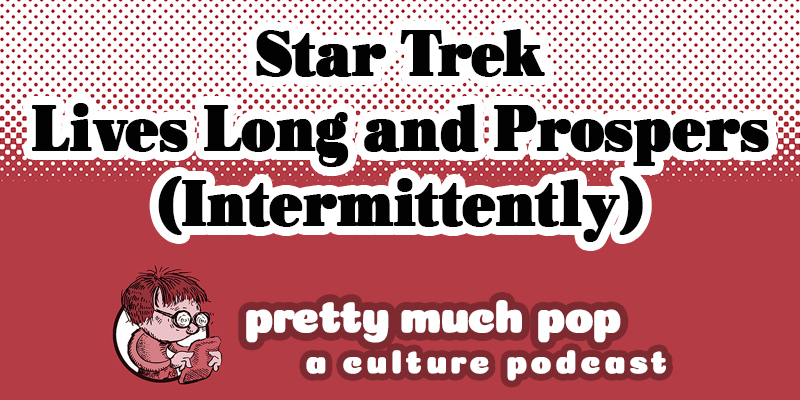
The world-wide Tribble infestation and Star Trek: Picard dropping make this an apt time to address our most philosophical sci-fi franchise. 44 years of thought experiments (with photon torpedoes!) about what it is to be human should have taught us something, and Brian Hirt, Erica Spyres, and Mark Linsenmayer along with Drew Jackson (Erica's husband) reflect on what makes a Star Trek story, world building over generations in Gene Roddenberry's land, canon you don't remember vs. something that just hasn't been shown on screen, Trek vs. Wars, and step-children like The Orville and Galaxy Quest.
We have gathered a heap of articles for further cogitation:
- "Star Trek Picard: 5 Things Trekkies Loved (& 5 Things They Hated)" by Tim Buckler
- "Is There Any Hope for Picard?" by Angelica Jade Bastién
- "How many Picards are there?" by Anthony Pascale
- "How Picard Fits Into the Star Trek Timeline" by Eliana Docterman (Read more about the timeline on Wikipedia.)
- "Discovery’s Michael Burnham Obsession Is Hurting Star Trek Canon" by Dusty Stowe
- "Why Michael Burnham is Great and 'Star Trek: Discovery' is Not" by Christina Escobar
- "Hear Me Out: JJ Abrams’ Star Trek Movies Are Better Than His Star Wars Films" by Sean O’Connell
- "Report: Paramount Eyes Chris Pine To Reboot ‘The Saint’ As They Await Noah Hawley’s Star Trek Script" at trekmovie.com
- "Quentin Tarantino Clarifies—Then Confuses—The Timeline For His Star Trek Project" by Anthony Pascale
- "Star Trek 4 Has Some Big Hurdles To Overcome" by Dusty Stowe
- "10 Strange Star Trek Timeline Continuity Errors" by Liam Horn
For some suggested episodes to catch up on, there are lists online recommending those from the original series and from the franchise overall. There are also fan creations like these original series episodes, a Star Trek musical, and of course the Improvised Star Trek podcast. For some relevant words from Rod Roddenberry, check out episode 55 of the Mission Log podcast.
Learn more at prettymuchpop.com. This episode includes bonus discussion that you can only hear by supporting the podcast at patreon.com/prettymuchpop. This podcast is part of the Partially Examined Life podcast network.
Pretty Much Pop: A Culture Podcast is the first podcast curated by Open Culture. Browse all Pretty Much Pop posts or start with the first episode.
Star Trek: World-Building Over Generations—Pretty Much Pop: A Culture Podcast #42 is a post from: Open Culture. Follow us on Facebook, Twitter, and Google Plus, or get our Daily Email. And don't miss our big collections of Free Online Courses, Free Online Movies, Free eBooks, Free Audio Books, Free Foreign Language Lessons, and MOOCs.
from Open Culture https://ift.tt/2zhl8Nw
via Ilumina
Comments
Post a Comment